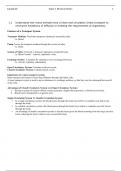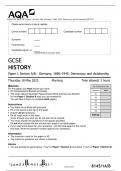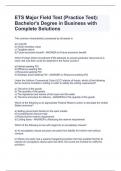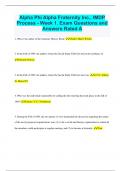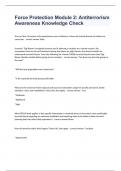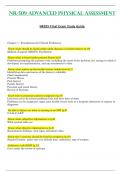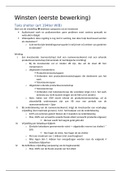Summary
Summary Edexcel Biology AS Level (Salters Nuffield A) Topic 1 - Lifestyle, Health & Risk - Full Notes
- Module
- Topic 1 (9BNO01)
- Institution
- PEARSON (PEARSON)
Detailed and comprehensive notes on topic 1 (lifestyle, health & risk) of Edexcel biology AS Level. Covers water, circulatory system, atherosclerosis/blood clotting, lifestyle factors, diet, carbohydrates, lipids, cholesterol, CVD treatment and core practicals 1 & 2. Notes are organised alongside t...
[Show more]
